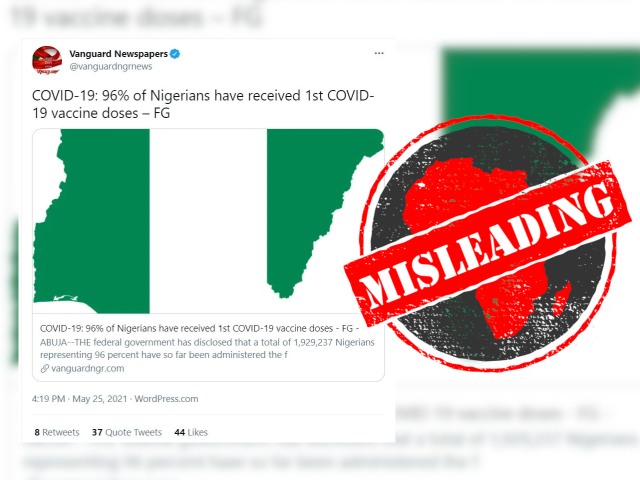An April 2018 Facebook post shared in Nigeria shows photos of melted cars and traffic lights with the claim they were damaged by the world’s highest temperatures yet, recorded in the Middle Eastern country of Kuwait.
The first photo shows the apparently melted tail lamps and rear fenders of two cars. In the second, traffic lights seem similarly deformed.
The caption for both photos reads: “Kuwait on Saturday recorded the highest temperatures in the world, reaching up to 63° Celcius under direct sunlight.” It credits the Kuwaiti newspaper Al Qabas as the source.
It doesn’t say when this was supposed to have happened.
Another post with the same photos claims the temperature reached 52°C – in Saudi Arabia.

Temperatures in Kuwait have reached well over 50ºC recently, which some reports say are the hottest yet recorded.
But the photos don’t show the effects of the heat wave.
A Tineye reverse image search for the first photo reveals it was first posted on the internet in June 2018.
It was taken in the US state of Arizona after a fire.
The second photo is from Kuwait, but the damage was also not due to any heat wave.
According to fact-checking site Snopes the photo of melted traffic lights was taken in 2013 after another fire. – Lloyd Hazvineyi
The first photo shows the apparently melted tail lamps and rear fenders of two cars. In the second, traffic lights seem similarly deformed.
The caption for both photos reads: “Kuwait on Saturday recorded the highest temperatures in the world, reaching up to 63° Celcius under direct sunlight.” It credits the Kuwaiti newspaper Al Qabas as the source.
It doesn’t say when this was supposed to have happened.
Another post with the same photos claims the temperature reached 52°C – in Saudi Arabia.

Fire damage in Arizona and Kuwait
Temperatures in Kuwait have reached well over 50ºC recently, which some reports say are the hottest yet recorded.
But the photos don’t show the effects of the heat wave.
A Tineye reverse image search for the first photo reveals it was first posted on the internet in June 2018.
It was taken in the US state of Arizona after a fire.
The second photo is from Kuwait, but the damage was also not due to any heat wave.
According to fact-checking site Snopes the photo of melted traffic lights was taken in 2013 after another fire. – Lloyd Hazvineyi
Republish our content for free
For publishers: what to do if your post is rated false
A fact-checker has rated your Facebook or Instagram post as “false”, “altered”, “partly false” or “missing context”. This could have serious consequences. What do you do?
Click on our guide for the steps you should follow.
Publishers guideAfrica Check teams up with Facebook
Africa Check is a partner in Meta's third-party fact-checking programme to help stop the spread of false information on social media.
The content we rate as “false” will be downgraded on Facebook and Instagram. This means fewer people will see it.
You can also help identify false information on Facebook. This guide explains how.



Add new comment